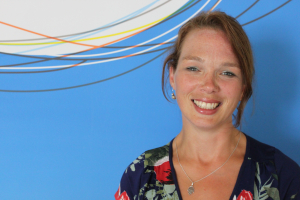Transnational faith based development and the post secular experiment
| Date: | 18 October 2012 |
| Author: | Religion Factor |

In her blog-post on the Religion Factor, Cecelia Lynch discusses FBOs in the context of the neoliberal competition on the ‘market’ of international development. In my work on and with development FBOs in the Netherlands I see this illustrated. Changes in government funding for development organizations, has created a highly competitive market in which religious identity supports a clear organizational profile. However, the increased attention for religion and religious identities of development organizations cannot be explained in the context of Neo-liberalism only.
The professionalization of FBOs as development organizations and the impact of secularization processes in Dutch society on these FBOs has also motivated a new identification with religion in the new Millennium. In this we see religious and secular identifications entangled in an interesting manner. This entanglement becomes even more apparent when we take into account how Dutch FBOs work on sex education and prevention of HIV/AIDS with FBOs in Uganda. Some Dutch FBOs have, despite their religious identity, predominantly operated within a human rights framework. Moreover, they have motivated their Ugandan partner FBOs to do the same, by developing policies on sex education focused on individual choice.
For Dutch FBOs their secular, liberal approach of sexuality is often more prominent than the religious identity they share with their FBO partners. At the same time, this doesn’t mean that Ugandan FBOs adopt this secular liberal perspective on sexuality unquestioned. In Uganda, Dutch initiated reflections on sex education initiated an internal process of negotiation in FBOs about how religious ideals of abstinence can be balanced with compassion. This compassion was rooted in a deep concern with young people who run the risk of getting infected by HIV/AIDS. True, the cooperation with Dutch FBOs on sex education motivated some Ugandan FBOs to support a more individual rights based approach in the sex education policies that were designed. However, in my view it is the complex entanglement of religion, secularism and power that influenced ‘changed’ views on sexuality.
This brings me to question if we, rather than focusing on what is religious and what is secular, shouldn’t focus on how specific views or moralities are negotiated in practice. I agree with Erin Wilson that it is interesting to explore the post-secular as a framework that may lead to a better understanding of how religion and the secular are entangled in the moral and ethical dilemma’s FBOs experience. However, I also share her doubt whether we can apply it beyond Western contexts.
In addition, I am not sure whether the concept of the post secular allows us to understand how transnational relations are shaped in the context of (historical) power differences. Does it aid our understanding of how religion serves to constitute or counter these power differences in practice. Experimenting with the post secular not only brings out the question of applicability outside the ‘west’, but also involves a critical analysis of what we consider to be the ‘west’. The study of transnational religious engagements, such as faith based development networks or Diaspora communities will definitely provide an interesting angle for this experiment!
Brenda Bartelink is the Senior Project Officer for the Oikos Foundation Knowledge Centre for Religion and Development, Utrecht, the Netherlands. She is also a PhD student in the Faculty of Theology and Religious Studies, University of Groningen, examining the history of faith-based development organisations and their role in the contemporary development sector.

